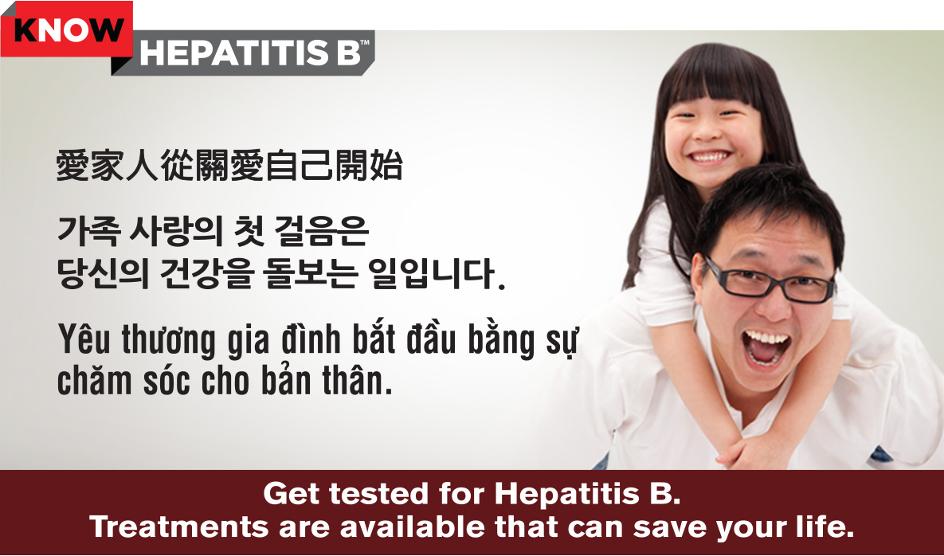Increasing Hepatitis B Awareness and Testing Among Asian Americans and Pacific Islanders

An estimated 1 in 12 Asian Americans and Pacific Islanders (AAPIs) are infected with hepatitis B virus (HBV); however, two-thirds are not aware of their infection. As we near the end of May’s observance of both Hepatitis Awareness Month and Asian-Pacific American Heritage Month, I want to underscore the importance of addressing hepatitis B infection among AAPIs.
While AAPIs comprise approximately five percent of the U.S. population, they are disproportionately affected by hepatitis B infection, accounting for over 50 percent of the nation’s cases. Furthermore, hepatitis B-related liver cancer is the

leading cause of cancer death among Asian Americans. Thus, it is of great importance to build awareness among AAPI communities and encourage testing and linkage to care. There are effective treatments available for hepatitis B, and getting individuals into care can be lifesaving.
Overarching goals outlined in the national Viral Hepatitis Action Plan (Action Plan) include increasing the proportion of persons aware of their HBV infection from 33% to 66%, and eliminating mother-to-child transmission of hepatitis B. A key strategy for achieving the latter goal – ensuring that all pregnant women receive hepatitis B screening – was discussed in a May 12th post authored by Corinna Dan, RN, MPH: Eliminating Hepatitis B in the United States – Mothers Matter!
“This May marks one year since the U.S. Preventive Services Task Force (USPTF) issued a Grade B recommendation for hepatitis B screeningExit Disclaimer for individuals at high risk, including persons born in countries with a ≥2% prevalence of chronic hepatitis B infection, which includes all Asian countries and Pacific Islands,” observed OHAIDP Viral Hepatitis Policy Advisor Corinna Dan. “This screening recommendation, in concert with the healthcare coverage provided by the Affordable Care Act to an estimated 2 million previously uninsured AAPIs, has created opportunities both to promote awareness among affected persons and health professionals and to reduce barriers to access to and affordability of hepatitis B testing, care, and treatment.”

The CDC’s Know Hepatitis B campaign, aims to increase hepatitis B awareness, testing, vaccination and treatment in AAPI communities. This campaign targets those who may already be infected, as well as their families and loved ones who also may encourage them to get tested for hepatitis B.
Free and downloadable multilingual resources are available to help you get involved and spread the word:
- Hepatitis B risk assessment
- Public Service Announcement videos
- Fact sheets
- Posters
- Health e-cards
While May is almost over, our fight against viral hepatitis continues. By advancing our efforts in building awareness among AAPIs and increasing testing, we can make progress toward the goals outlined in the Action Plan and improve the health and well-being of those infected with or at increased risk for hepatitis B.